Written by: Haroon Shuaib
Posted on: February 15, 2023 |  | 中文
| 中文
Zia Mohyeddin (center) with Virginia McKenna (left) and Dame Sybil Thorndike during the filming of BBC TV drama, 'A Passage to India'
With Zia Mohyeddin’s demise on February 13, 2023, aged 91, Pakistan lost one of its towering giants in the field of art and culture. Born in Faisalabad, previously known as Lyallpur, into a family originally from Rohtak, East Punjab. His father, Khadim Mohyeddin, was a mathematician, musicologist, playwright and a lyricist, who was associated with various theatre groups. His primary occupation of course was as a lecturer at Lyallpur College. However, Zia had an estranged relationship with his father for most of his life. In an interview, Zia recalled, “It would be foolish of me to say that my acting career began on the stage in a play, written by my father, at the age of 11. A lot of people who act as schoolboys become lawyers or accountants or insurance agents. But something happened to me during that first experience. I lost all sense of time and space. It was as though I had lost my sense of recognition. The people I had been rehearsing with were strangers whom I had never seen before. As for the actual setting, it appeared to be a space in another world, a dream. And although I spoke my lines, it was quite some time before I realized that it was I who was speaking. For the record, it was not a school play but a public performance.”
Zia went to Lahore for his college education, and it was at the famous Government College where his passion for literature, both English and Urdu, developed. He gave up his masters in psychology in order to go to Australia in the early 1950s under the Colombo Plan to study broadcasting methods on a Frequent Broadcasting Fellowship. Under the fellowship, Asian students from Commonwealth countries were offered training facilities in media in Britain and Australia. The young Zia, burning with his passion to learn acting, soon proceeded to London to study at the Royal Academy of Dramatic Arts (RADA). “We would work through the week rehearsing a play opening on Monday. Come Monday night, one started rehearsing another play, which would open the following week on Tuesday. We were paid five pounds seventeen shillings and six pence a week. One could never have a proper meal. Making both ends meet was a problem. One had to decide whether to buy a tube of toothpaste or have an omelette. How one survived is still a mystery,” he recalled those times.
He returned to Pakistan in 1957 upon hearing the news of his father’s sudden coronary ailment. He did his first professional production for Karachi Arts Council. It was ‘Lal Qila se Lalu Khet’ (from the Red Fort to Lalu Khet) in Urdu written by Khwaja Moeenuddin. He went on to stage many other Western classics and their Urdu adaptations, till the British Council suggested that he undertake a tour and study the works of theatre directors such as Tony Richardson and George Devine.
Zia became famous for his role as Dr. Aziz in the play A Passage to India, based on E.M. Forster’s novel, staged at the Oxford Playhouse in 1960 and later at the West End and Broadway. A television version of the same play was made by the BBC in 1965. The play was an even greater success in New York, and Zia was feted for his performance making him the first Asian to have his name up in lights on Broadway. Soon after the success of A Passage to India on stage, Zia was roped in for his film debut by David Lean in Lawrence of Arabia, playing the role of Tafas, Lawrence’s guide. He went on to act in films such as Khartoum, directed by Basil Dearden, Behold a Pale Horse, directed by Fred Zinnemann, Sammy Going South, directed by Alexander Mackendrick, and Bombay Talkies by Merchant-Ivory. Besides stage and films, Zia was also busy doing television plays such as The Jewel in the Crown, Death of a Princess, and Z-cars.
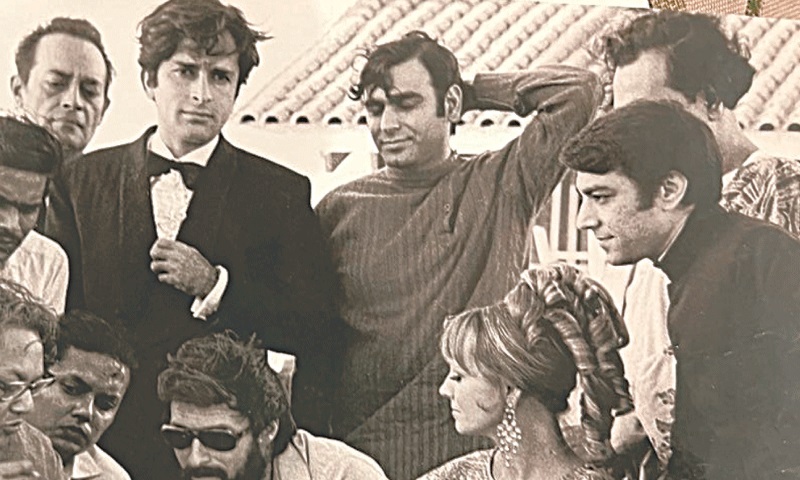
Zia Mohyeddin (right) on the set of the 1970 Merchant Ivory film, Bombay Talkie, alongside other cast members, including Shashi Kapoor
His love for his country kept bringing him back to Pakistan despite his acting commitments in the west. In Pakistan, he went on to host the hugely popular television talk show, "The Zia Mohyeddin Show" between 1969 and 1973. This immensely famous talk show, the first of its kind on Pakistan television, introduced some of the finest talents to viewers. Zia Mohyeddin became a household name, thanks to his signature style of breaking into short monologues in between conversations, accompanied by a group of live musicians. Zia was soon handpicked during the mid-70s to head the PIA Arts and Dance Academy, where he nurtured many artists.
After the imposition of martial law in the country in the late 70s, Zia Mohyeddin left Pakistan and returned to England, where he remained until the mid-90s. In 1979, Zia Mohyeddin directed Family Pride, one of the first programs on British television about the plight of the Asian community. An ardent fan of literature, Zia adapted the discipline of the Western genre of "reading" to Urdu prose and poetry. Through his "distinctive" reading style, the youth were introduced to poets and authors like Ghalib, Mir Taqi Mir, Nazir Akbarabadi, Momin, Jigar Moradabadi, Josh Malihabadi, Firaq Gorakhpuri, Faiz, Noon Meem Rashid, Meerajee, Ibn e Insha, Patras Bokhari, and English writers like Shakespeare. Those who have heard Zia Mohyeddin read, can never forget its impact. His flawless and controlled diction, intonation and pronunciation brought to life the words of these great poets and writers. This was a form of Reader’s Theatre at its finest. Zia in his own words explained, “Reader’s Theatre is a style of theatre featuring minimal movement and scenery and relying instead on the vocal expressiveness of the actor to create a sense of place, character and action. You have to do it all with your voice.” Zia Mohyeddin was most definitely a master of this art.
“Good speech alone, however, does not make one a good reader. Reading involves the simultaneous use of the eye, the ear and the voice, all coordinated by the brain. It is this three-pronged aspect of the operation that has to be practiced and mastered,” he said. “Urdu poetry by Noon Meem Rashid or Meerajee, which is wonderful to read, is not always easy to understand (like Faiz) but it is evocative and creates a stirring in the minds of an audience. I feel if I have been able to arouse such stirrings, I have done my job.” He most definitely did a fine job in introducing generations to a literary treasure of Urdu poetry and prose that otherwise would have reached only a few. In addition to his dramatic repertoire of poetry and prose, Zia Mohyeddin was also among the finest exponents of the Marsiya, the classic Urdu tradition of reciting poetry to commemorate the sacrifice of the Prophet’s grandson Imam Hussain at Karbala. Zia’s recitations of Mir Anees, Josh Malihabadi and Mustafa Zaidi are televised regularly during Muharram.
The ex-President of Pakistan, General Pervez Musharraf, requested Mohyeddin in 2005 to establish and head the National Academy of Performing Arts (NAPA) in Karachi. Zia Mohyeddin continued to teach diction and other theatre disciplines and direct theatre plays at NAPA as the President Emeritus, mentoring the young talent till he passed away. He also wrote a collection of essays; A Carrot is a Carrot and two more books, including The God of My Idolatry: Memories and Reflections. He wrote, “I have had my share of triumphs and disasters, setbacks and jubilations. I have never been in any doubt that the compulsive irrational human instinct — the Need to Act — gives rise to more disappointments than anything else, but I’d rather live through these than own a chain of Walmarts. The moment of elation as you step forward to take a bow and hear the surge of applause rise to a crescendo, compensates for all the frustrations that a theatrical career necessarily entails.”
Zia Mohyeddin was awarded the Hilal-i-Imtiaz (Crescent of Excellence) and the Sitara-i-Imtiaz (Star of Excellence). He personified the best that Pakistan has produced, whether in the fields of acting, directing or recitation.
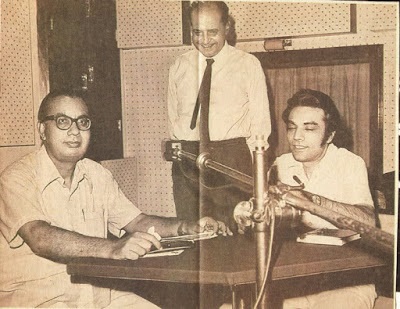
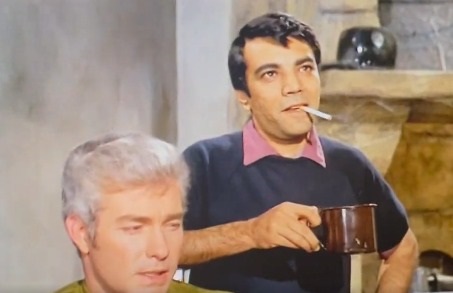
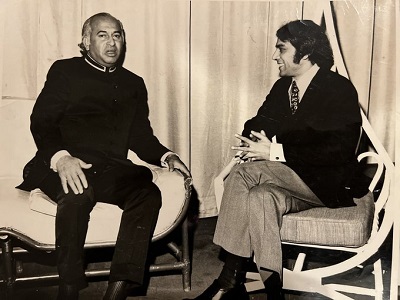
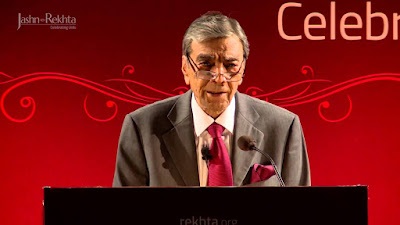
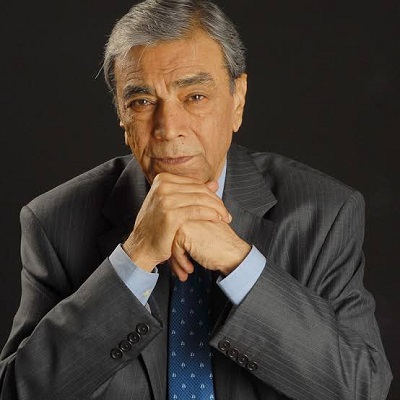
You may also like: